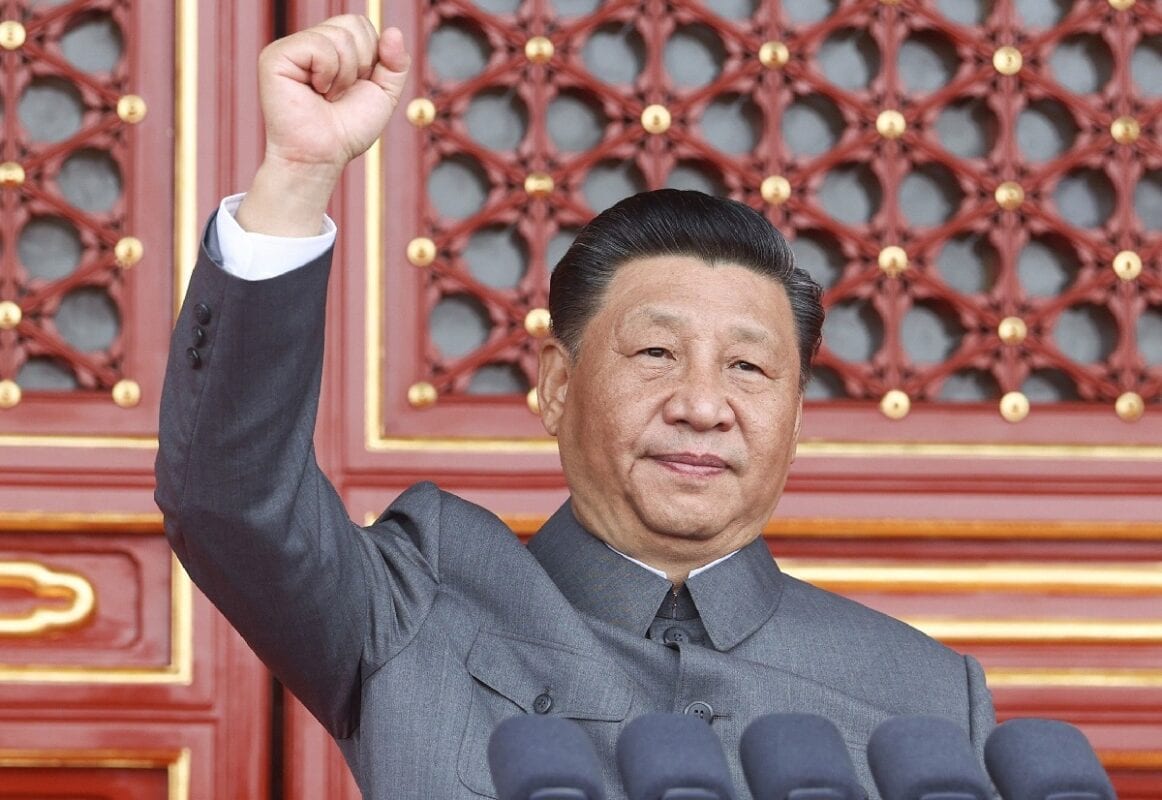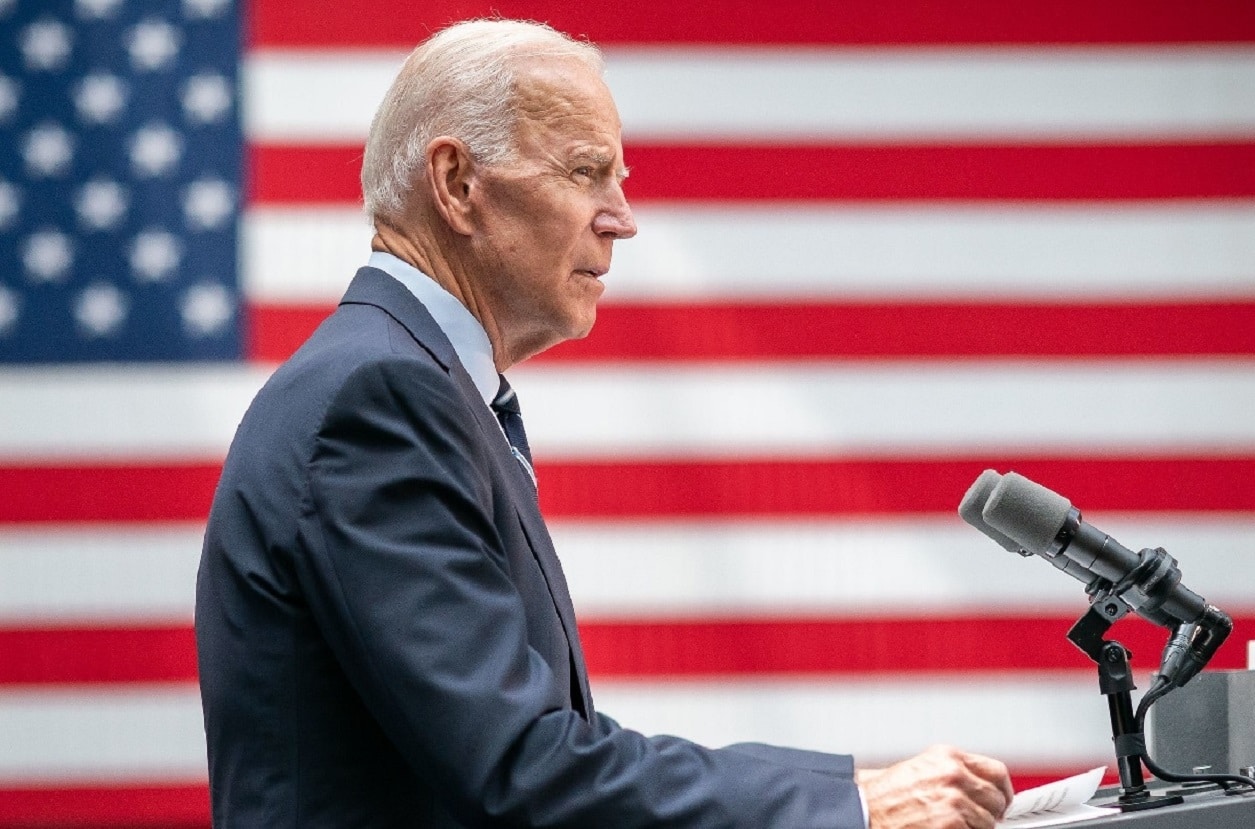Last Saturday, leaders of the G-7 nations meeting in Hiroshima issued a 40-page communique addressing, most importantly, their relations with China.
The communique was touted as demonstrating G-7 unity and strength against Beijing’s economic warfare, but the China language instead reflects disarray and incoherence.
Embarrassingly weak, for example, is the Taiwan passage.
It is essentially unchanged from recent G-7 statements, ignoring China’s rapidly rising menace during the same period. Similarly, the G-7 urged China to speak directly to Ukraine, but referred only to a peace “based on territorial integrity,” not on the full restoration of Ukraine’s sovereignty as well as its territorial integrity — a restoration all NATO members profess to support.
By resorting to bromides regarding both Taiwan and Ukraine, the leaders of the global West do precisely the opposite of what they intend: They reveal weakness rather than unity and strength.
An Empty Slogan
The communique is weakest and least coherent on the G-7’s economic relationship with China, the very front where current Chinese efforts at regional and global hegemony are playing out. Instead of forthrightly confronting Beijing’s economic aggression, the Hiroshima document relies on a slogan, a sure signal of inadequate strategic substance. The communique adopts the mantra first unfurled by the European Union and quickly adopted by the Biden White House.
The slogan holds that the G-7 nations favor “derisking, not decoupling” their economies from China. This is a bumper sticker in search of a meaning, masking both the European Union’s flat unwillingness to acknowledge the Chinese threat, and significant policy disagreements and inadequacies within the G-7. It reflects not so much a failure of leadership in bringing along the lagging Europeans, but a collapse of U.S. resolve at the very outset.
The G-7 communique is quick to say, “we are not decoupling or turning inwards.” In fact, the concept of “decoupling” was always a straw man, an exaggeration implying near-cessation of business between China and the West. Deployed in America by those who overprize economic relations with Beijing — placing their importance above American national security — the term aimed to panic businesses and policymakers who were beginning to awaken to the re-emergence of significant international political risk. This “project fear” meaning of decoupling was never accurate.
Nor was “decoupling” ever seriously suggested in the sense of a government-mandated, latter-day industrial policy. Such an approach was no more likely to succeed than other industrial policies, which all rest on the assumption that politicians and government bureaucrats are better at making economic choices than markets. Existing levels of trade and investment between the global West and China are, for well or ill, too complex to believe that top-down government decision-making would lead to anything other than confusion and disorder.
Where government-directed decoupling is necessary, and should be expedited, is where it can eliminate dependency on goods and services that significantly impact U.S. national security. Both the Trump and Biden administrations have imposed significant sanctions on China in the high-tech field.

Chinese President Xi Jinping.
Europe trails far behind. France and Germany still see China almost exclusively through an economic prism, as repeatedly confirmed by statements from German Chancellor Olaf Scholz and French President Emmanuel Macron.
Even the United Kingdom is torn, with significant debate between the hawkish Conservative parliamentary party and a China-friendly Ten Downing Street.
China Decouples
The hollowness of the “derisking, not decoupling” mantra is most evident at the level of individual firms, which have no practical way to derisk without decoupling. They must either reduce capital investment, or at least not increase it; withhold intellectual property (at risk from decades of Chinese piracy); reduce supply-chain reliance; find other markets; or take other defensive measures, depending on the circumstances of the particular firm. Many companies are already deeply engaged in reducing or hedging their risks, but others are not. These latter may ultimately pay the greatest economic price for their lack of diligence.
In due time, the sum of national-security prudence and businesses’ political-risk decisions will determine the extent of decoupling, not the G-7’s false dichotomy.
Tellingly, China is already far along in decoupling from the West, preparing for future military conflict by reducing its dependence. In what should have been required reading for G-7 leaders at Hiroshima, Ross Babbage’s The Next Major War demonstrates what Beijing was doing while we slept. Babbage explains four decades of China’s policy of so-called dual circulation, or “two markets, two resources.” Beijing’s “domestic market [was] a resource to protect and insulate, while foreign markets were to be penetrated and exploited.” He quotes McKinsey’s conclusion that “‘China has been reducing its exposure to the world, while the world’s exposure to China has risen.’”

Chinese President Xi Jinping with the first lady during the Moscow Victory Day Parade on 9 May 2015.
Poor Signals From the G-7
However, China was far from successful in insulating itself. Its dependence on massive energy imports and other raw materials remains a critical weakness — one very difficult for China to correct in the foreseeable future, given its lack of domestic mineral and hydrocarbon resources.
The global West is only belatedly grasping the extent of China’s theft of intellectual property, massive protectionism, and governmental subsidies. As the gauzy era of globalization dissipates, political risk has re-emerged as a central factor in international business, especially with China. Political risk is not and never was confined to the world’s economic fringes. Under Deng Xiaoping’s policy of “hide your capabilities and bide your time,” Beijing convinced too many Western politicians and businesses of the fantasy that China was little more than a pure economic play. This holiday from history is over, and China’s misdeeds and threats, politically, economically, and militarily, are increasingly evident.
G-7 meetings come and go, and their leaders’ statements fade quickly. The impression that will not fade after the Hiroshima summit, certainly not from the minds of policymakers in Beijing, is that the great industrial democracies are still divided and unsure about how to oppose China’s economic warfare against them. The global West’s disarray only encourages Xi Jinping’s belligerent tendencies.
Ambassador John R. Bolton served as national security adviser under President Donald J. Trump. He is the author of “The Room Where It Happened: A White House Memoir.” You can follow him on Twitter: @AmbJohnBolton.

